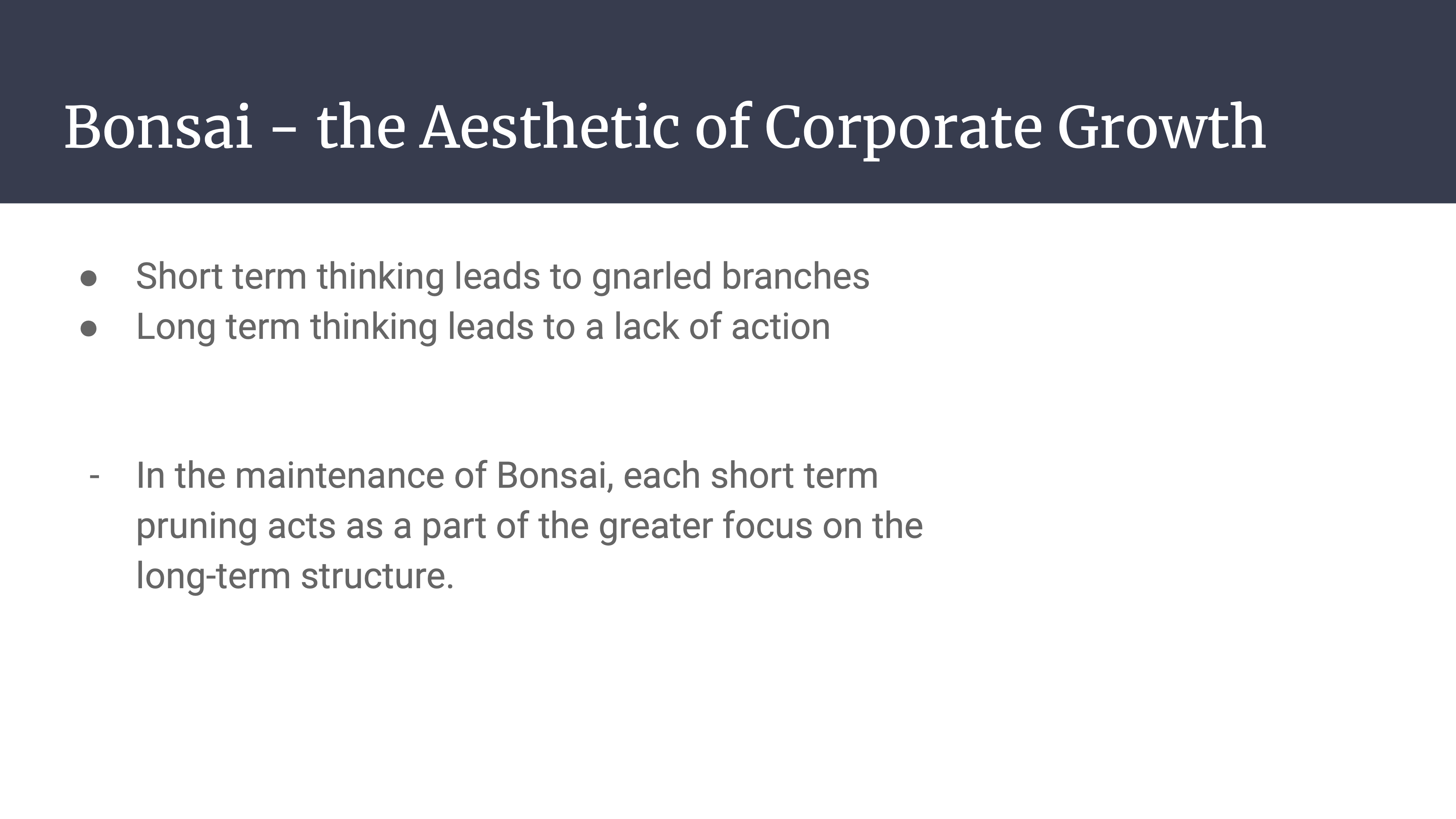In a recent PATCA webinar, David Harrell, founder of OP Consultancy, delivered an insightful presentation on structuring businesses for inherent stability rather than pursuing unchecked growth. Drawing from diverse experiences in data analysis, creative problem-solving, and organizational efficiency across various industries, David emphasized the importance of sustainable business practices and the interplay between brand identity and organizational structure.
Daisugi Style: An Ancient Lesson for Modern Business
David introduced the concept of Daisugi, a centuries-old Japanese forestry technique. In this method, a single tree is meticulously pruned to produce straight, high-quality lumber without harming the original tree. This approach serves as a powerful metaphor for businesses: cultivating growth and productivity while maintaining the organization’s core essence and health.

The Pitfalls of Unbridled Growth
Modern business models often prioritize vertical growth and revenue maximization. However, David highlighted that such an approach can lead to organizational bloat, communication breakdowns, and inefficiencies. He cited examples of large corporations like Google and Apple, which have faced challenges due to their expansive growth but have managed to navigate them by adopting cellular structures that promote flexibility and localized decision-making.
Brand Identity and Evolution
David discussed the role of branding in sustainability. He explained that a brand is not just a promise but an identity perceived both by users and non-users. Using examples like Kellogg’s, which has frequently updated its logo while maintaining its core product, and IBM, which has retained its iconic logo amid internal changes, David illustrated the balance between staying true to one’s roots and adapting to evolving market dynamics.
He stressed that while external aesthetics might change to resonate with contemporary audiences, a brand’s internal purpose and values should remain steadfast. This balance ensures longevity and relevance in a rapidly changing business landscape.
Navigating Change and Ensuring Sustainability
Change, while necessary, often meets resistance due to inherent human aversion to altering the status quo. David mentioned the persistence of fax machine usage in Japanese businesses and medical offices as an example of clinging to familiar processes for perceived stability and security.
For businesses to thrive sustainably, they must adopt a holistic approach that considers both form and function. This involves being mindful of internal processes, external perceptions, and the broader environmental and technological shifts. Companies should be prepared to prune outdated practices and pivot strategically, much like the Daisugi method (which itself fell out of fashion due to technological and economic changes), to remain relevant and efficient.
“Daisugi Style”: Understanding Sustainability
David Harrell’s presentation underscored businesses’ need to prioritize sustainability over aggressive growth. Drawing lessons from ancient practices like Daisugi and examining contemporary corporate strategies, he provided a roadmap for organizations to balance stability with adaptability. The key lies in maintaining a clear, long-term vision, being open to evolution, and ensuring that every structural and branding decision aligns with the organization’s core purpose and values.
About David Harrell
As an Operations Management Consultant and CPC member of PATCA, David Harrell helps clients enhance revenue by optimizing business processes, policies, and performance. With over eight years in operations management and four years in supply chain management, he holds degrees in political shifts and historical trends and a diploma in Project Management. David specializes in data analysis, creative problem-solving, and organization, using innovative tools to streamline operations across various industries. He has successfully revamped project management systems, implemented automation and CRM solutions, and developed international shipping strategies. David is passionate about creating synergies that boost customer satisfaction, employee engagement, and business growth.
